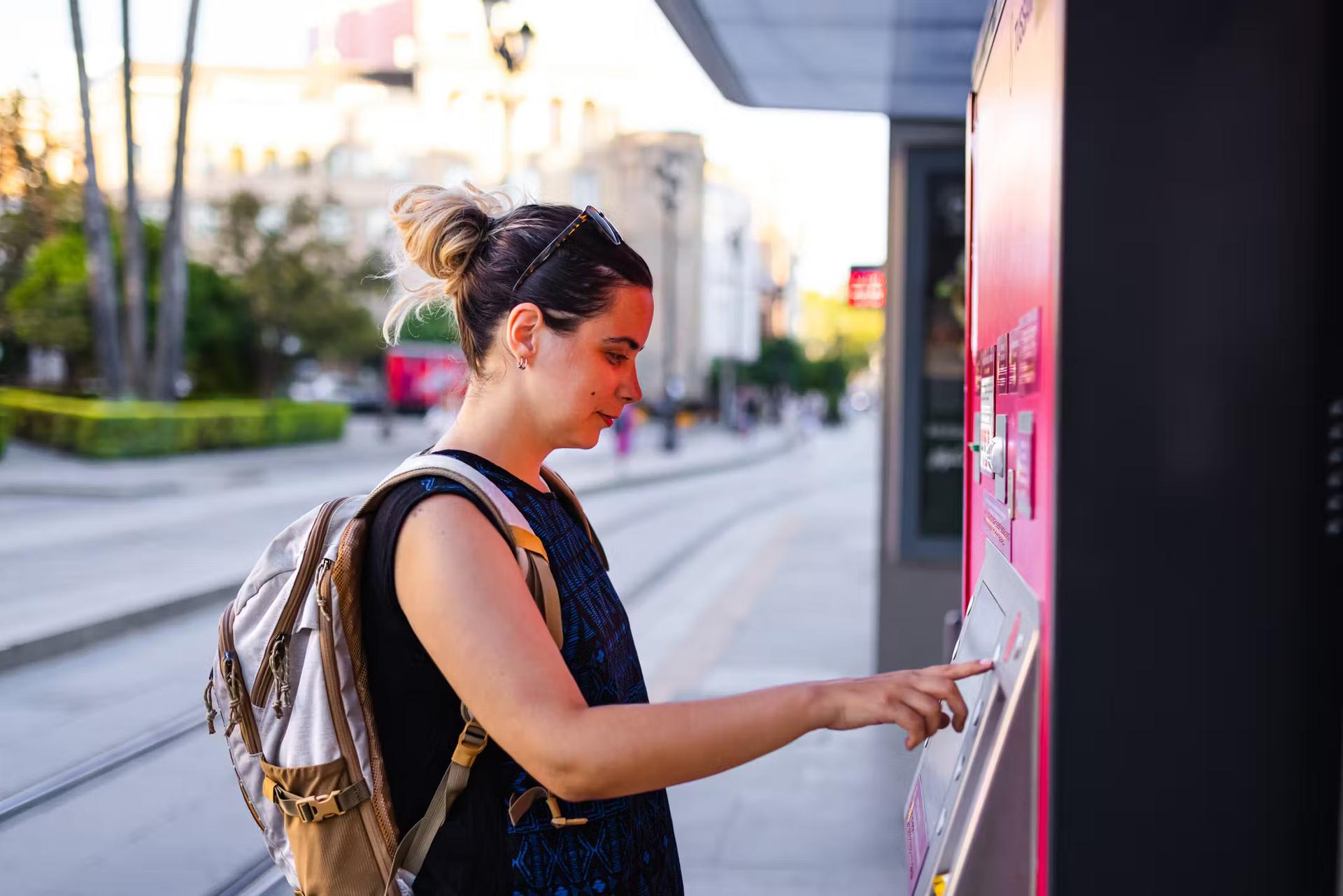Starting next year, many passengers who travel on long-distance coaches in Spain will be able to do so for free, the government confirmed on Tuesday.
Earlier this year, free train tickets were introduced for short and medium-distance journeys in Spain. The measure started on September 1 and was only meant to last for three months to help people struggling with rising energy costs – but its success led the government to extend it throughout the coming year.
Transport and mobility minister Raquel Sánchez confirmed on Tuesday that the program will expand again, this time to include long-distance coaches that are part of the state concession network.
As well as cutting commuters’ costs in the cost of living crisis, the transport minister said the bus scheme would save more than 350 million liters of fuel, potentially preventing the emission of one million tons of CO2 into the atmosphere during 2023.
How does the free long-distance bus scheme work?
Currently, people can purchase tickets from companies who operate state-owned bus routes at a 50% discount – and next year, the discount will increase to 100%. It doesn’t cover single journeys. To apply, you’ll have to purchase season or multi-trip tickets (in batches of 10, 20 or 30) and pay a €20 deposit.
Thanks to the state’s extensive bus network, covering 1,837 municipalities throughout the country, you can travel huge distances across Spain, from Madrid to Barcelona, Alicante to Murcia, Santander to Salamanca, Santiago de Compostela to Barcelona, and more.
It’s not yet clear how many journeys a passenger has to take in order to get the deposit back. With the free train scheme, it’s 16, but the government hasn’t specified the details of the bus scheme yet. We will update this article when we have more information.
In the meantime, if you plan to travel to Spain next year, there are significant savings to be made across the rail network under the free train tickets scheme. Not just for locals, the scheme is aimed at passengers from all over the world, including American and European tourists to Spain. Here’s what you need to know.
What train lines are covered by the free ticket scheme?
The policy includes rail journeys on Cercanías, Rodalies and Media Distancia rail lines that travel across short and medium distances, typically up to 186 miles (300km).
Cercanías: These trains link the main cities with their metropolitan area. Cercanías operate in Alicante, Barcelona, Bilbao, Cádiz, Madrid, Málaga, Oviedo, Santander, San Sebastián, Sevilla, Valencia and Zaragoza.
Rodalies: The same concept as Cercanías, just in the region of Catalonia.
Media Distancia (MD): These trains usually link different cities, towns and villages within a single autonomous region.
The measure doesn’t include either long-distance train journeys or high-speed lines like AVE, Avant and Avlo.
How do I apply?
You’ll need to download the Renfe app (for iOS or Android) and sign up for an account to purchase your free train tickets, or apply at railway stations. Once you’ve paid your deposit, you’ll receive a QR code that can be used as a free ticket.
Visitors to Spain can sign up using their passport number.
Although tickets are free, passengers must pay a deposit of €20 for Media Distancia journeys and €10 for Cercanías. The deposit will be returned at the end of the year if you’ve completed a minimum of 16 journeys. (We recommend paying the deposit by card since if you pay by cash the refund process can take longer.)
Is it worth signing up as a tourist?
If you want to explore some less-visited regions, then yes. Even if you don’t complete the minimum 16 trips to qualify for the deposit refund, you can still make savings.
For example, say you’re visiting Barcelona and you want to use the city as a base to explore the surrounding area. A Media Distancia round-trip ticket from Barcelona to Figueres costs €32 without the scheme, which is more expensive than the €20 deposit. So even if you don’t complete the 16 trips needed to get your deposit back, you’re still saving €12 on one trip alone.
If you need some inspiration on where to go, below is a list of suggested itineraries that you could take under the free ticket network.
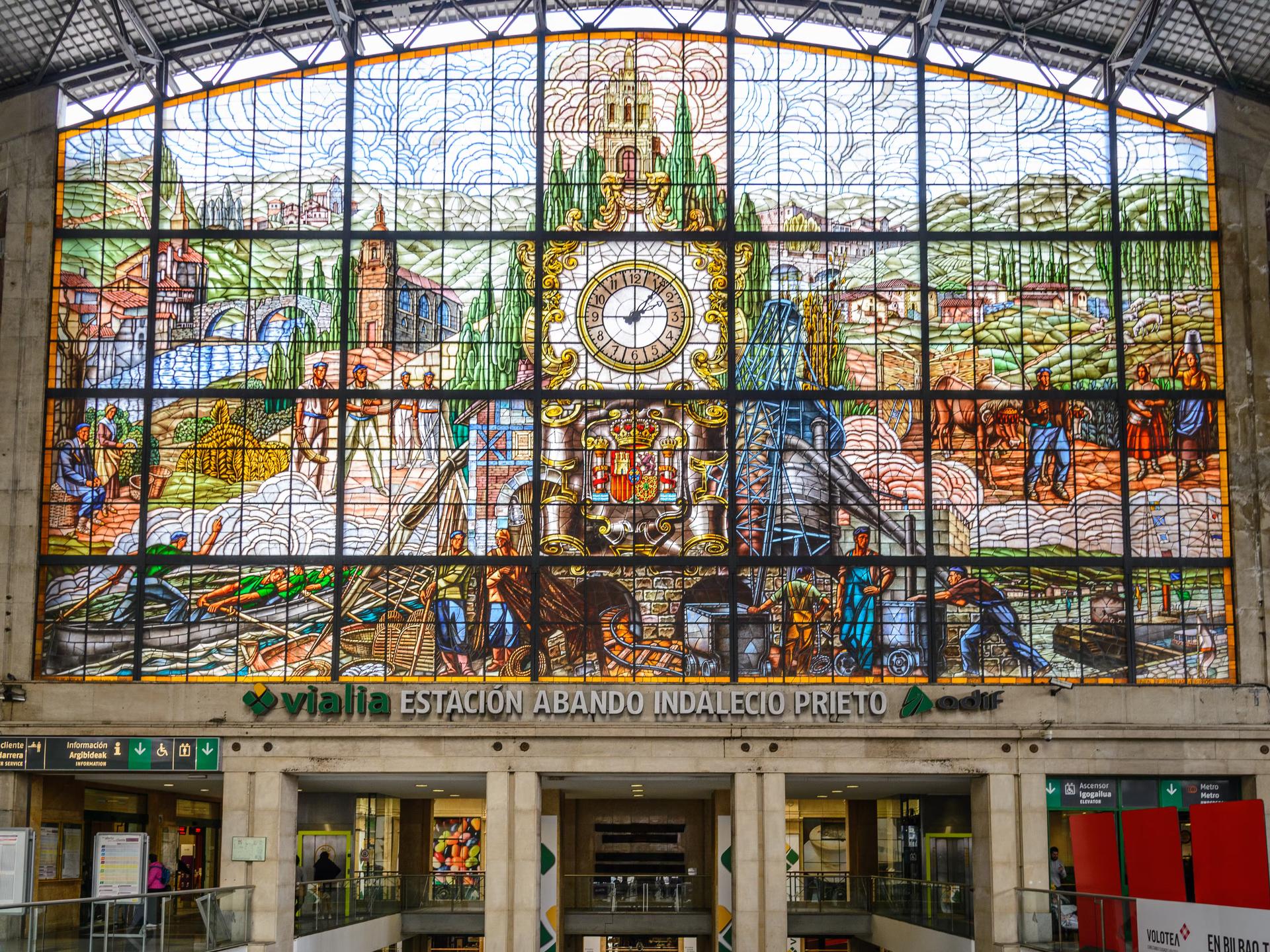
Spain by train: the best local and medium-distance itineraries
Easy train trips from Madrid
The capital of Spain is the main transportation hub in the country, with direct trains to almost every major city. Near Madrid, however, there are more than a few worthwhile cities located in the historical region of Castile, all of them excellent day trips from Madrid.
Toledo is perhaps the most visited city close to Madrid. Home to sword artisans and one of the largest old towns in Europe, its historical city was declared a Unesco World Heritage site in 1986. It is composed of architectural masterpieces that reflect the mix of civilizations that have lived here for some 2000 years, including the Romans, Muslims, Jews and Christians.
Those looking for a culinary experience can take a train to Segovia, located less than 62 miles (100km) north of Madrid. The town is nationally famous for its cochinillo asado (roasted piglet), always served crispy and washed down with local red wine. If the local food isn’t enough reason, Segovia is also home to the most well-preserved Roman aqueduct in the world, a Unesco World Heritage site since 1985.
If you want to escape the crowds, you might want to try Cuenca, a fortified medieval town also Unesco-designated thanks to its unusual hanging houses and Spain’s first Gothic cathedral.
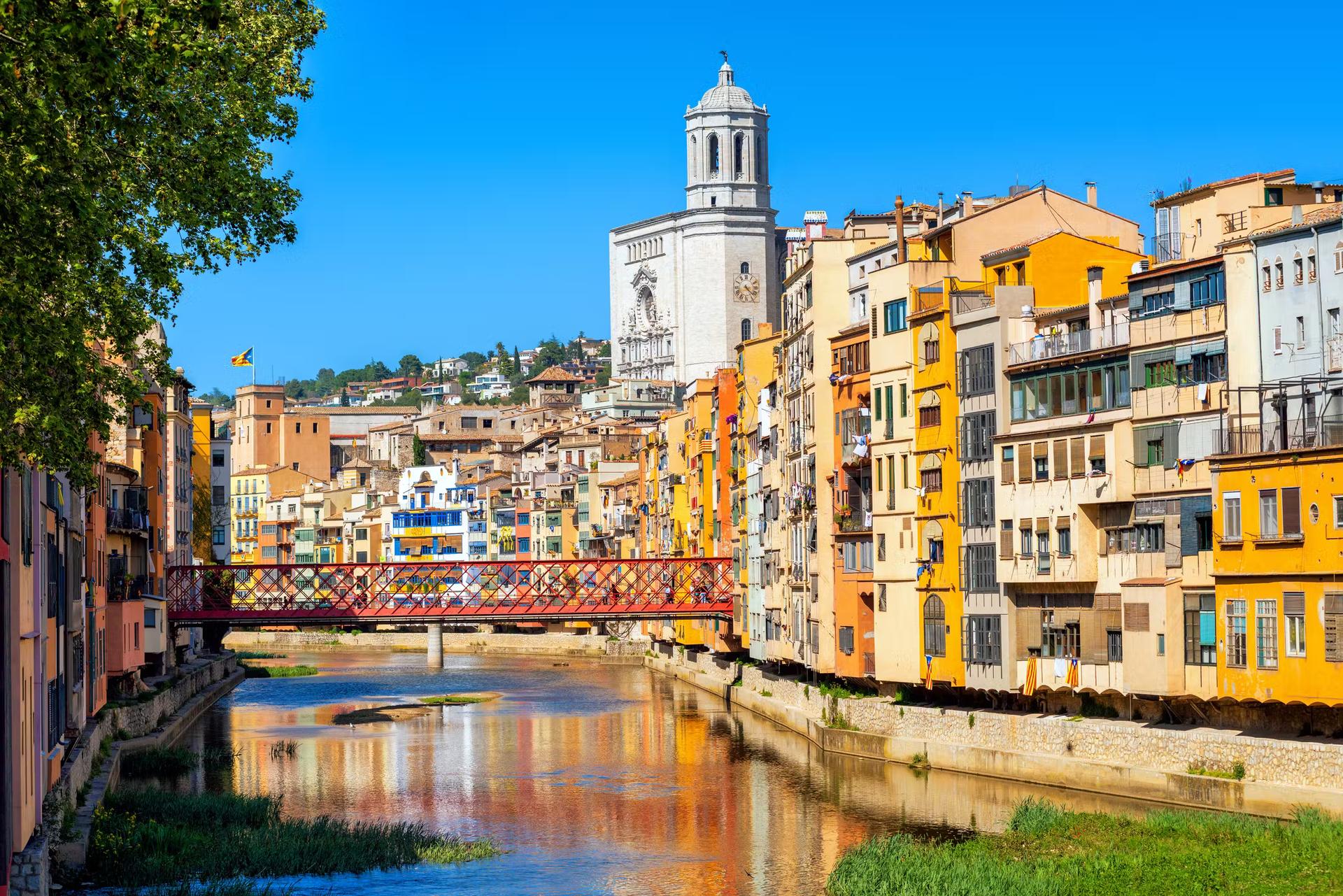
Easy train trips from Barcelona
The most popular city in Spain is the perfect base for exploring the region of Catalonia.
First-timers should take the train to Girona, a 2000-year-old city founded by the Romans, which also contains one of the best-preserved Jewish quarters in the world. The entangled, medieval alleys of Girona’s old city were also a major filming location for Game of Thrones. Continue on the same train for an extra 30 minutes to reach Figueres, the birthplace of the painter Salvador Dalí. The city houses a museum that contains the largest collection of the artist’s work in the world.
An easy, short train trip from Barcelona, Sitges is a bustling and sophisticated coastal town with whitewashed houses and restaurants serving Catalan cuisine. Do try xató, a local sauce made from almonds, vinegar and red pepper, typically eaten with anchovies, cod fish and salads. Sitges is also the center for LGTBIQ+ tourism in Spain.
Consider getting off the beaten track by visiting Vic, a rarely visited town in the center of Catalonia, famous both for its medieval architecture and the best embotit (pork cold meat) around. Don’t forget to buy some fuet and llonganissa from one of the many butchers in town. The locals from Vic are also known for having the strongest Catalan identity in the entire autonomous region.
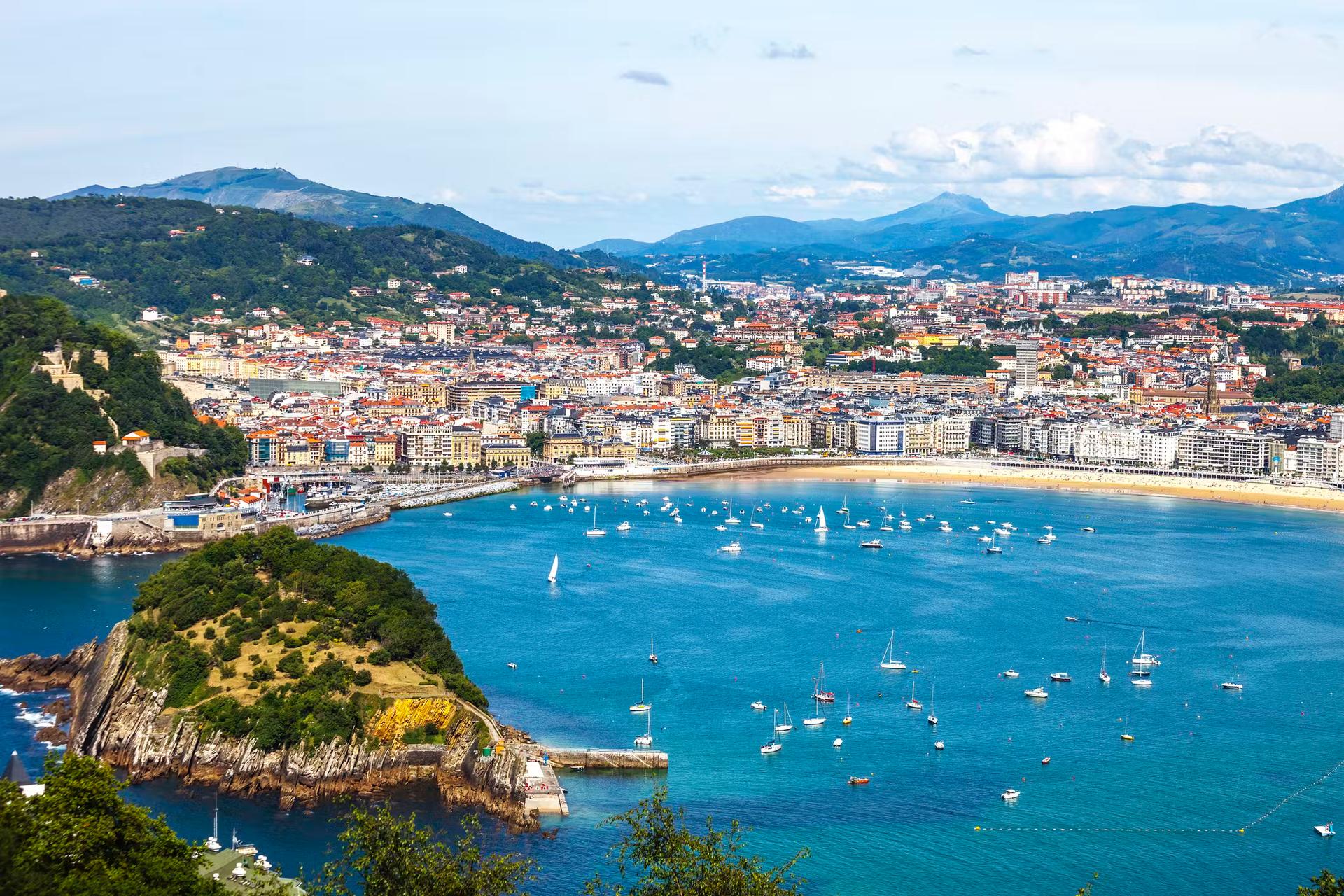
Easy train trips from Bilbao
Bilbao is the most populated city in the Basque Country.
If you had to take one single train journey from here, we would recommend San Sebastián (Donostia in the local language), the most refined city in Spain. Most Spaniards agree that San Sebastián offers the best food in the entire country, ranging from budget pinchos (local tapas) to a wide range of Michelin-star restaurants.
Wine enthusiasts may have also heard of Rioja wines. They are all produced in the Spanish region of the same name, with Logroño its capital. Every one of the city’s bars and restaurants has an extensive list of Rioja wines to try. Moreover, the old city gets particularly busy around 1pm and 7pm, when locals gather over a few glasses of wine and tapas before lunch and dinner respectively – an unmissable local experience.
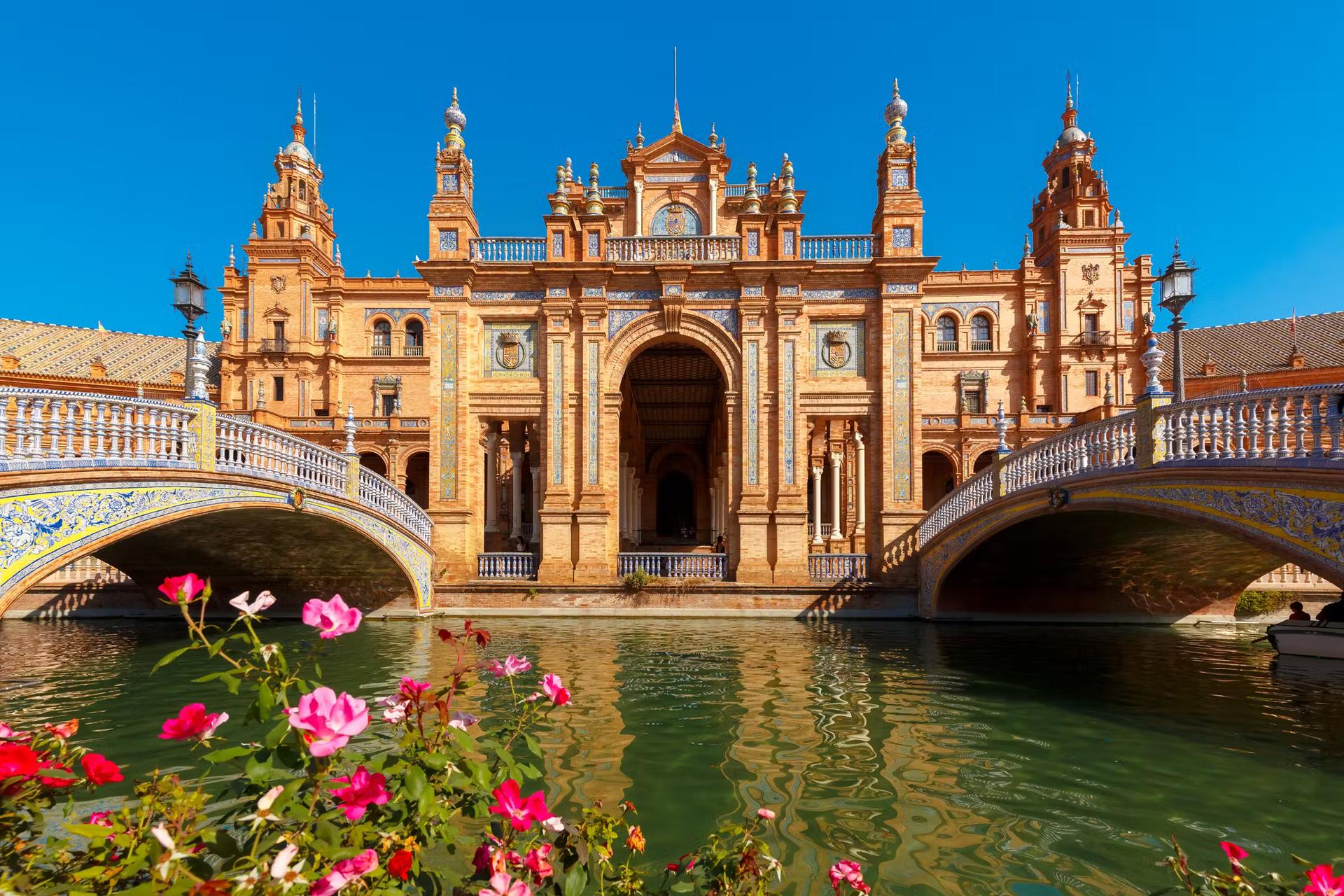
Easy train trips from Málaga
Málaga is the most cosmopolitan city in the region of Andalucía, and a transportation hub for the region.
The regional capital of Seville is an open-air museum containing endless examples of jaw-dropping Moorish and Gothic architecture, like the Alcázar and the astonishing cathedral. Dance lovers can check out a flamenco performance in the city where the tradition burns brightest, while sports fans can head to a Sevilla FC or Real Betis match.
Often overlooked by tourists, Cádiz is an ancient port city on the southern coast of Spain known for local and friendly nightlife, especially during the summer season. February is an excellent time to come, too, since the carnival here is one of Spain’s best. Seafood is a big thing here, and locals tend to eat it fried. A must-try local specialty is tortita de camarones, consisting of deep-fried dough filled with shrimps.
Check schedules and ticket prices of tickets at renfe.com. We recommend booking well in advance.
